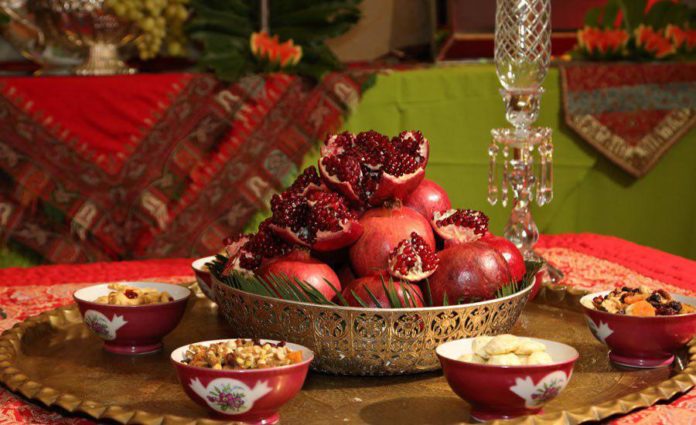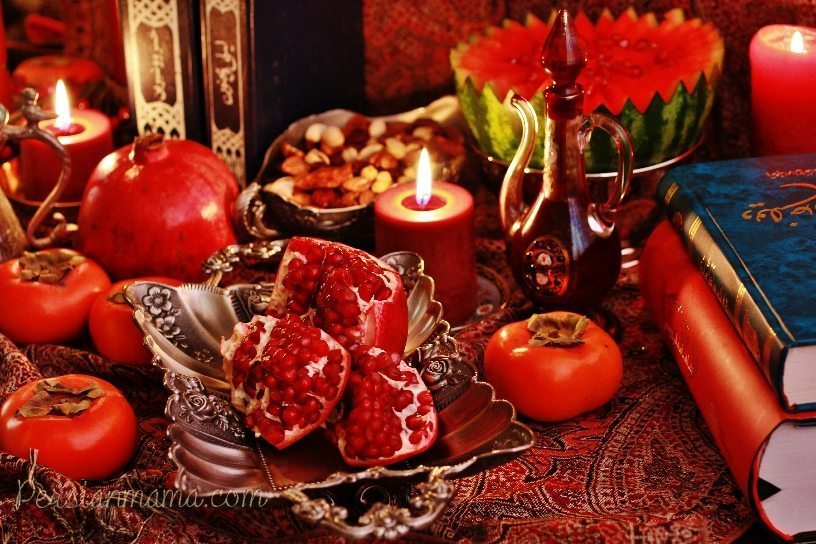For almost a year now, the COVID-19 pandemic has been the uninvited guest of the people across the world, forcing everyone to change their lifestyle.
This year, Iranian people are also forced to abandon their thousand-year-old tradition of family gatherings on Yalda Night.
Yalda Night (Shab-e Chelleh) is a Persian winter event which is commemorated on or around December 20 or 21 each year.
Yalda celebrations used to be a social occasion when friends and family gather to eat, drink and read poetry (especially Hafez) until after midnight.

Each member of the family makes a wish and randomly opens Hafez’s book of poems and recites the poem, which is believed to be an interpretation to the wish.
Fruits, particularly pomegranates and watermelons, and nuts are served in this night. The fruits signify the hope for having a fruitful spring and summer.
The red-coloured fruits are believed to symbolize the crimson hues of dawn and glow of life, invoking the glory of Mithra. Pomegranates with angelica powder are also believed to protect individuals against the Devil.
Central Asian countries such as Afghanistan, Tajikistan, Uzbekistan, Turkmenistan and some Caucasian states like Azerbaijan and Armenia share the same tradition as well and celebrate Yalda Night annually at this time of the year.
Yalda Night was officially added to Iran’s List of National Treasures during a special ceremony in 2008.
The annual winter ceremony manifests the traditional concept of light and good prevailing over darkness and evil in the ancient Iranian religion.
Despite all the economic hardships, many Iranians today were seen making their purchases of fruits such as pomegranates, watermelons and various dried nuts for the night’s celebration.
